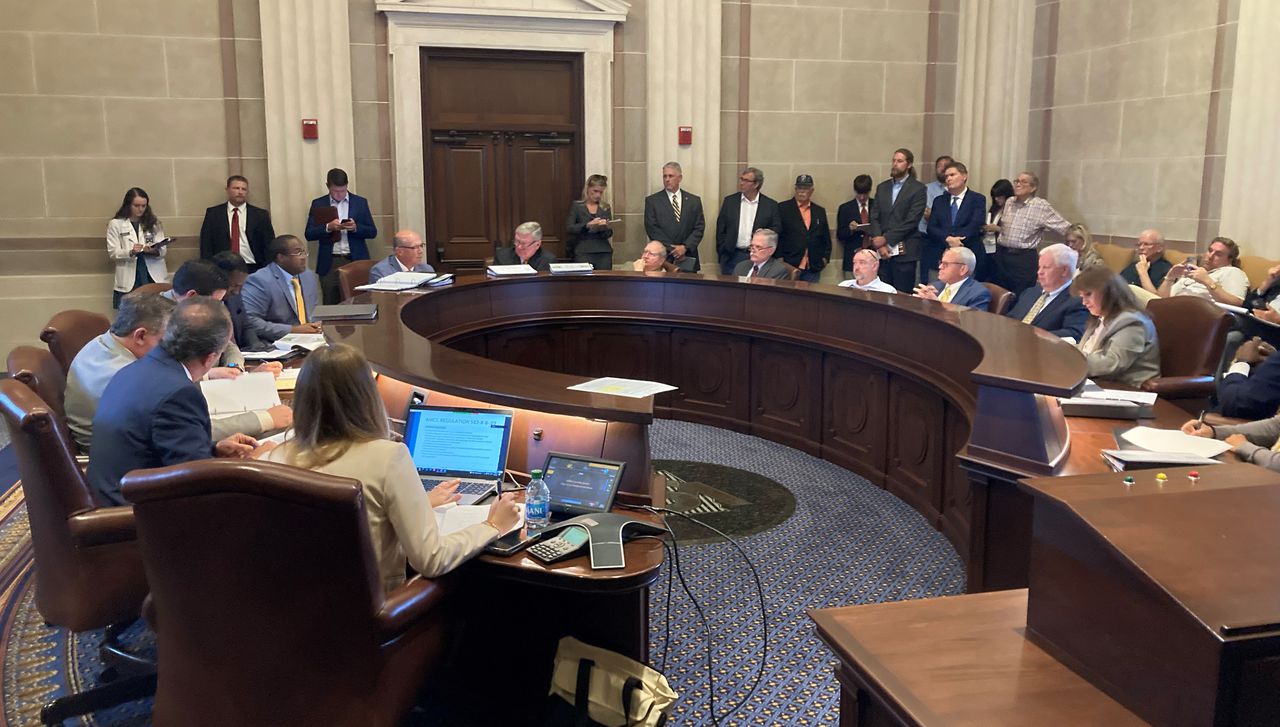Alabama Medical Cannabis Commission sees surge in applications
Applications from businesses aiming to join Alabama’s new medical marijuana industry poured in ahead of today’s deadline.
The Alabama Medical Cannabis Commission announced late this afternoon that it received a total of 94 applications from companies seeking licenses to cultivate, process, transport, test, and dispense medical cannabis products.
That was a sharp increase from mid-week, when only nine applications had been received. Commission Director John McMillan had said Wednesday he expected many more applications.
The application process is the latest step in setting up the new industry, authorized by legislation that passed in 2021. Alabama became the 37th state to legalize medical cannabis. Products are expected to be available in late 2023 or early 2024.
Here are the number of applications the commission received by license type, along with the maximum number of licenses it can issue:
- 12 cultivator applications; maximum of 12
- 12 processor applications; maximum of four
- 18 dispensary applications; maximum of four (each can have three dispensary locations)
- 11 secure transporter applications; no maximum
- 3 state testing laboratory applications; no maximum
- 38 integrated facility applications; maximum of five. (Integrated facilities will be authorized to cultivate, process, transport, and dispense medical cannabis. Each integrated licensee can have up to five dispensaries).
The commission said it will review applications and assign ranked scores based on merit. The commission said it has engaged the University of South Alabama to establish teams of academic evaluators and other qualified individuals to review, evaluate and score applications.
“Applicants have provided plans for production, business operations, facilities and security, to name a few, as part of their application,” Commission Chairman Dr. Steven Stokes, an oncologist, said in a press release. “Although reviewing these competitive applications is a huge undertaking, we will continue to move forward in implementing a fair and robust process that makes public health and safety a top priority.”
Applicants will have a chance to amend or fix deficiencies in their applications early next year. The commission is scheduled to release the applicants’ names and application contents for public inspection once they are considered formally submitted, which is scheduled for April 13. A public comment period will follow. The commission is scheduled to award licenses June 12.
“The Commission spent much of 2022 laying the groundwork for Alabama’s medical cannabis industry by drafting rules and regulations, obtaining software tracking systems, and developing the business applications,” McMillan said. “We are excited to utilize the strong framework we put together to implement a safe and operational medical cannabis industry as we move into 2023.”
Doctors who receive training in medical cannabis will be able to recommend the products for more than a dozen conditions — autism spectrum disorder; cancer-related pain, weight loss, and vomiting; Crohn’s Disease; depression; epilepsy or conditions causing seizures; HIV/AIDS-related nausea or weight loss; panic disorder; Parkinson’s Disease; persistent nausea; post-traumatic stress disorder (PTSD); sickle cell anemia; spasticity associated with multiple sclerosis or spinal cord injury; Tourette’s Syndrome; a terminal illness; and conditions causing chronic or intractable pain.
The legislation allows the products to be pills, capsules, tinctures, gelatinous cubes, oils, creams, patches, suppositories, nebulizers, and liquids or oils for an inhaler. No raw plant materials or products for smoking or eating will be allowed.
Go here for more information.
Related: Birmingham approves updated zoning for medical marijuana dispensaries
Huntsville gives approval to medical marijuana dispensaries
Fairhope second Alabama city to say ‘No’ to hosting medical marijuana dispensary
Who will dispense medical marijuana in Alabama and what will they need to know?
